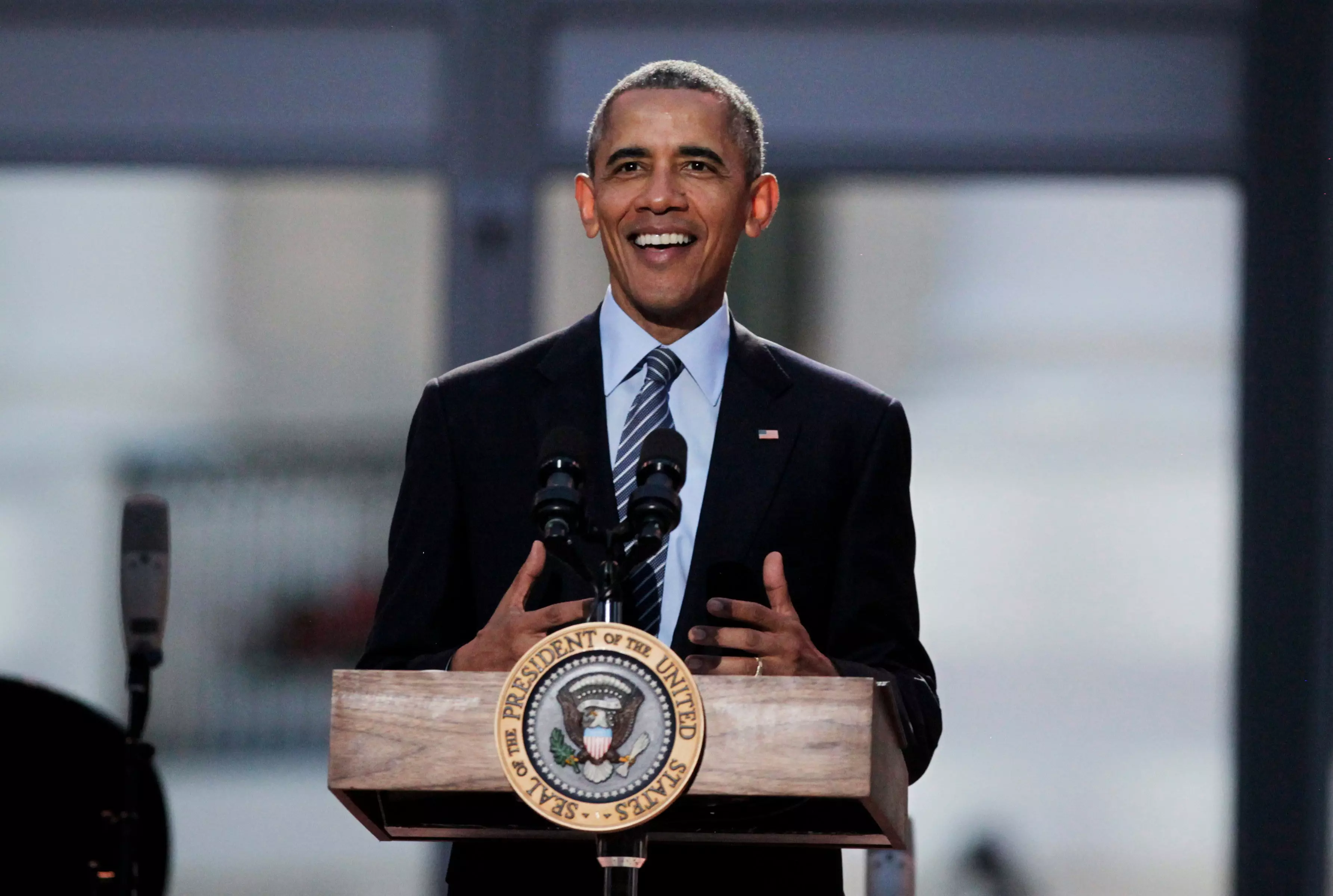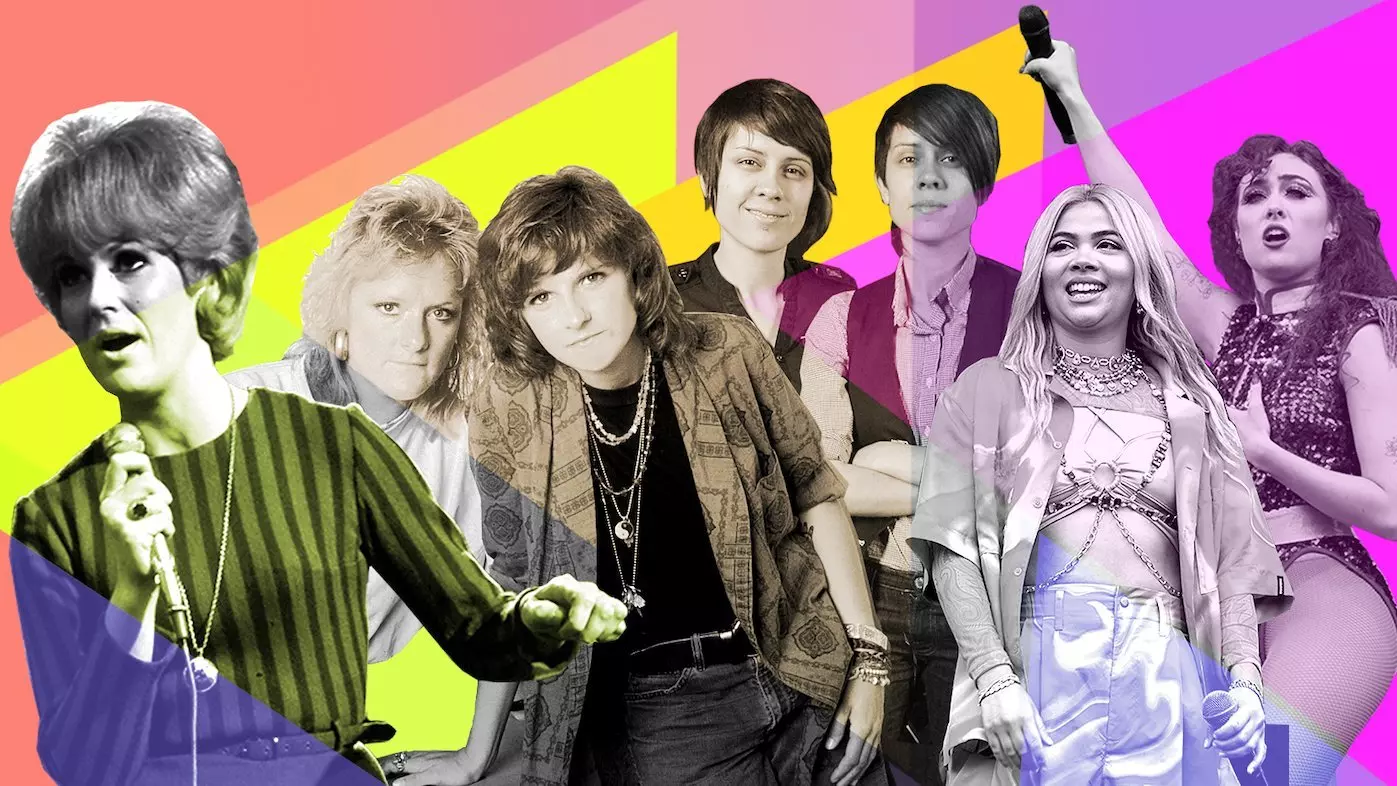Photo: Courtesy of artist
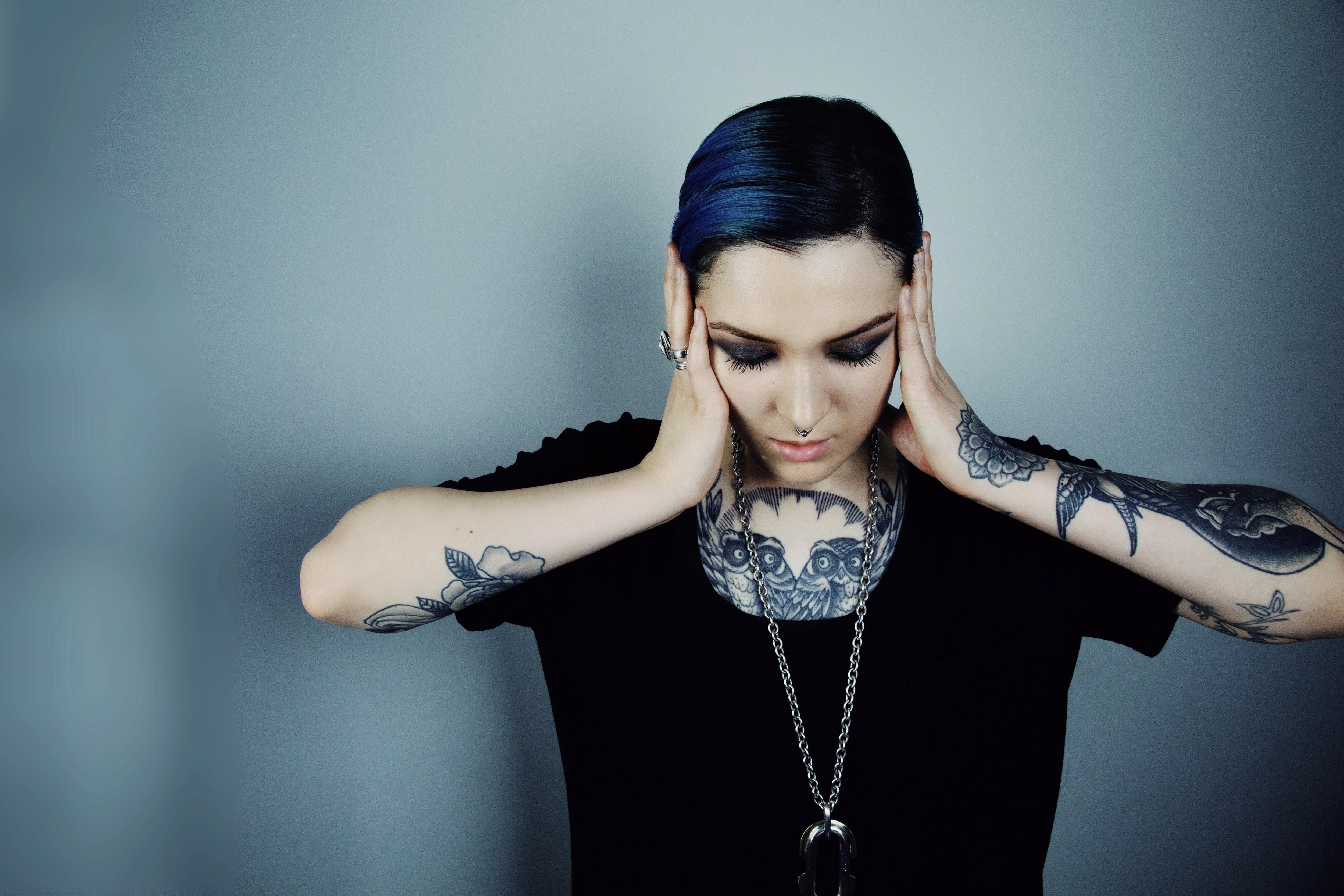
Maya Jane Coles
news
Maya Jane Coles On Representation, New Music, Creative Limitlessness & More
In celebration of her month-long Beatport residency, GRAMMY.com caught up with Maya Jane Coles to learn more about the stellar lineup she curated, what new music she's been cooking up, her teenage hip-hop roots and more
Maya Jane Coles is an unstoppable creative force. If being an in-demand producer and globally headlining DJ wasn't impressive enough, she is able to translate her artistry across genres and mediums with ease and undeniable skill. As Maya Jane Coles, she delivers deep, moody, pulsing house tunes. As CAYAM, she brings unrelenting techno bangers. As Nocturnal Sunshine, she channels her long-time love of hip-hop and her hometown (London) grime scene with dirty, bass-pumped collabs.
The 33-year-old Japanese-British wunderkind also has an eye for visual art, and has designed many of her album covers with trippy illustrations. While her name(s) and music are almost universally known in the global house and techno community, her beats have made a massive impact in mainstream pop. Her infectious 2010 breakthrough track, "What They Say," not only made waves in the dance world; it was the foundation for Nicki Minaj, Drake and Lil Wayne's 2015 banger, "Truffle Butter," and Katy Perry and Minaj's 2017 bop, "Swish Swish."
In celebration of her epic Women's History Month Beatport residency last month, GRAMMY.com caught up with Coles to learn more about the stellar lineup she curated for it, what new music she's been cooking up, her teenage hip-hop roots and much more.
How did you approach curating the Beatport Women's History Month residency?
I actually wasn't aware that the entire residency was going to be aired during Women's History Month when I was curating the lineups, so I didn't focus only on women except for the very last stream. My initial focus was to keep things as diverse as possible.
Each week was curated under a different alias of mine, which I hadn't done before, so I found it was a cool opportunity to give listeners a better understanding of what each project is about musically. MJC, CAYAM and Nocturnal Sunshine all represent such different sides of me as an artist. It's rare for me to DJ under my aliases, so I thought it would be fun to give everyone a taste of something a bit different.
Can you tell us a bit more about the artists you chose for the "Rising Stars" livestream?
For the "Rising Stars" stream, I was purely focusing specifically on East London-based talent—all incredible DJs (and also incredible people) that I had met in East London throughout various points in the last few years. It's always nice being able to include friends when possible, especially when I have so many talented people around me.
As for your DJ sets during the residency, what sort of energy and music did you strive to bring to those?
Honestly, I personally find DJ streams quite difficult to enjoy as it takes away the most important part of DJing for me, which is the connection with the audience and reading the crowd. Spontaneity is what makes a DJ set exciting, not knowing what's coming next or how you're going to feel during a set. This is why in the last year I kept it quite minimal and only chose to do a handful of sets, the Beatport Residency being a chunk of them.
I also stayed away from any huge production/green screen stuff, and just focused on the music. That's always the important part for me. As long as it sounds amazing, that's all that matters. Most of my time goes into digging, editing, remixing the tracks I'm going to play rather than prepping for how it's going to look.
You recently dropped the hard-hitting "Pull Up" and "Ridin' Solo" with Gangsta Boo under your Nocturnal Sunshine alias. What was it like working with her and how did ya'll approach those tracks?
I actually just hit up Lola (Gangsta Boo) on Insta, as I had been thinking about getting her on a track for a while. She got back to me right away and we started talking about the collab.
"Ridin' Solo" came first—we did everything remotely, London to L.A. I think the track ended up getting done in the space of couple days which was pretty incredible considering the time difference with the back and forth. I loved the outcome so much we ended up working on a second track, "Pull Up," which afterwards my label team ended up helping get Young M.A. to also feature on.
I still have Gangsta Boo's [1998] album Enquiring Minds, which I bought when I was 16, plus loads of old Three 6 Mafia [which Gangsta Boo was a part of] stuff from back then, so it was a pretty special moment having her guest on my Nocturnal Sunshine stuff. I've got more hip-hop and also U.K. grime stuff coming under the alias soon.
More Dance: Aluna On New Album 'Renaissance' & Making Dance Music Inclusive Again
And then last year, as CAYAM, you gave us the club-ready Pleasure EP to rave to at home. What was the inspiration for that release?
I was really starting to miss releasing tracks like my earlier club stuff. The MJC album stuff that I've released over the last few years has evolved a lot and I've developed so much as an artist on the compositional side, but I was also missing releasing the more instrumental club-based stuff like I did back in 2007 to 2011.
The CAYAM alias was something I started anonymously in 2014 but then didn't really continue with it. Last year, I thought why not pick it up again to put out some of the unreleased club tracks that I had lying around, plus use it as an outlet for the faster paced techno stuff that I had been making. I guess the focus for the Pleasure EP was picking back up the sound from my very early releases but with more of a current edge.
How do you feel that your aliases, as well as your visual art, allow the world to better understand the breadth of your creativity?
I don't think I will ever have any barriers to my creativity and the longer that I make music, the more diverse my projects seem to get. As long as I have my hearing, a working brain and mobility, I will always be releasing music. Who knows, maybe even if I was paralyzed neck down, I'd find a way to carry on!
It's the same with my artwork. I'm much more confident and prolific with music production, but I enjoy creating visual art just as much. I just don't get to spend as much time on the artwork because I'm always so busy with music, but it's still a very important part of me.
The aliases represent my different musical sides and I also make so much music—like classical stuff and ambient film score-type stuff—that doesn't even fit under any of the aliases. It's important for me to make music without overthinking about categorization or commercial release and just do it for pure enjoyment.
You began producing as a teen; what first drew you in to learning production and what software did you start with?
I was a huge hip-hop head when I was 14, 15 and always obsessed with the production. At that age, anything I was interested in, I would always try and do it myself. I always thought, "Well, if someone can do it, then surely I can learn how to do it too."
We had Cubase on a couple of the PCs in the music department at school, so that was what I used to mess around with. My dad eventually managed to get me a cracked version of it from one of his mates and I would just sit at home on it for hours every day. I grew up playing guitar and cello and would record loops into Cubase and chop them up, chop up drum breaks, and sample my parents' old vinyl.
I was instantly obsessed with making beats and by age 16 I knew that my career goal was to become a music producer. At 17, I was awarded a grant to buy myself some music equipment and got myself a legit copy of Logic Pro and my first turntables and mixer. I spent all my spare time making music and DJing. I've never looked back since.
What artists/producers most inspired you in your early years? Did you have any mentors along the way?
There's so much out there that has inspired me in one way or another at some point during my early years of production. Missy Elliott and Timbaland were my idols when I was 16 and still, to this day, remain two of my favorite-ever artist/producers with their constant futuristic and fresh outlook within mainstream music.
I'm just going to throw a few [more] names out there, but I could go on and on, as the list is endless—Massive Attack, Mobb Deep, Trentemoller, Eric Satie, Radiohead, Kruder & Dorfmeister, Björk, Wu-Tang Clan, The Cure, Nirvana, pretty much all female rappers that were around [then], from Jean Grae, Bahamadia, Apani B to Lil' Kim, Da Brat, Queen Latifah, etcetera.
"The more lineups and new talent are pushed by an equal and diverse representation of people behind the scenes, the more diverse the actual lineups themselves will be."
What do you think the dance music community can do to return the scene to its more inclusive, radical roots?
I think one of the key things is to focus more on diversifying the people who have a say in what is pushed out there for the public. [We need to] step away from giving all of the control to the same few people. The more lineups and new talent are pushed by an equal and diverse representation of people behind the scenes, the more diverse the actual lineups themselves will be.
There needs to be real passion behind the change rather than promoters throwing in a few token names just because they feel like they have to. I feel like I spent the first 10 years of my career being pretty much the only female on 95 percent of the lineups I was billed on. Hopefully that is a thing of the past now.
What's on the horizon for you in 2021?
My main focus during the last year has been to finish my third MJC album. It's so nearly there, it's always the very end that's hardest. The bar gets set higher for every album, so I feel like I'm going crazy now get to the finish line! But it will all be so worth it when it's wrapped and out there for the world to hear.
I'm also working on a Nocturnal Sunshine x Cha$ey Jon£es mini-album, which is more hip-hop/grime focused. We have quite a unique sound together and I can't compare it to anything that's currently out there, so I'm excited for everyone to hear what we've been cooking up. I have a couple more CAYAM EPs on the horizon as well! Stay tuned.
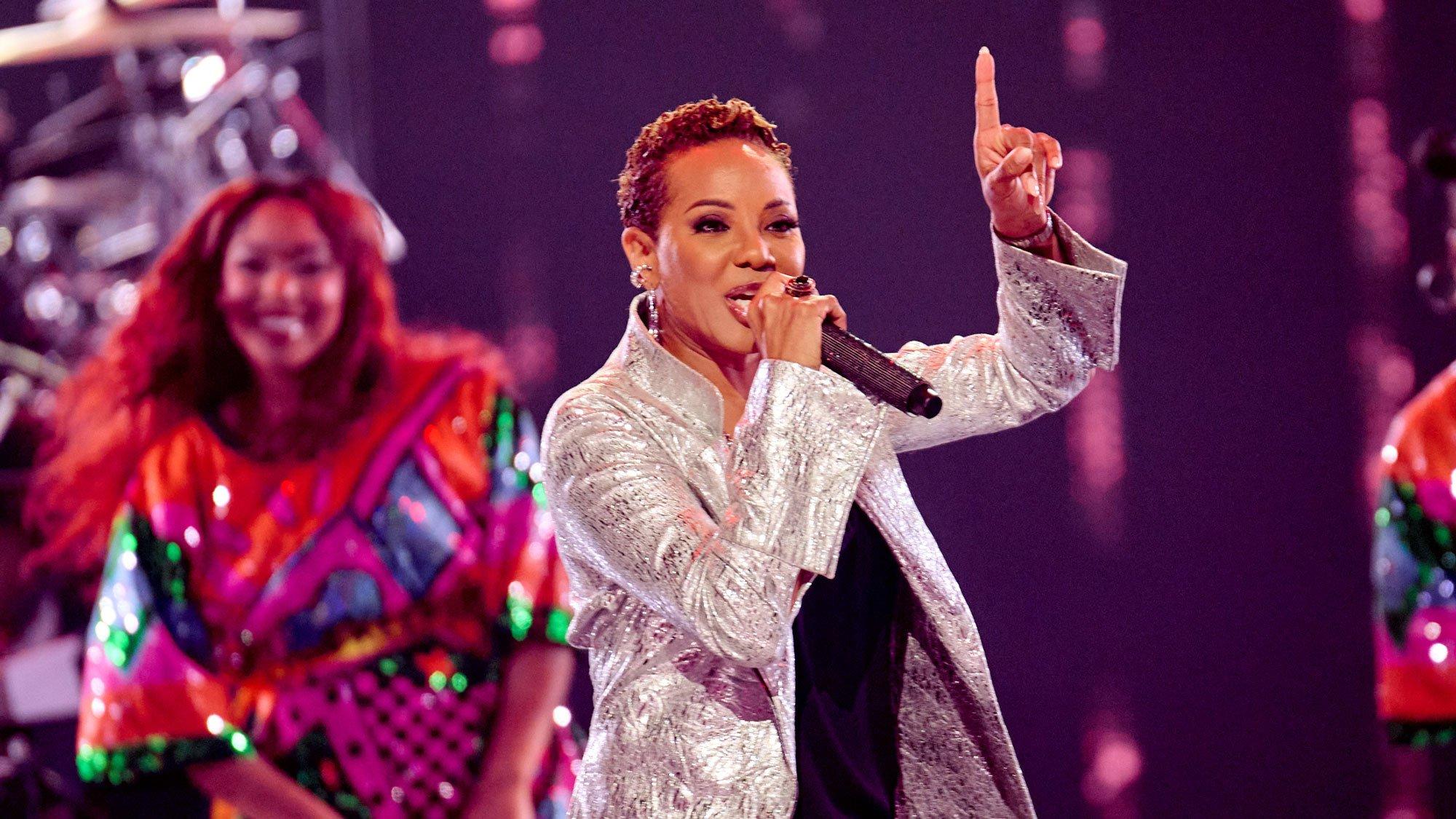
Photo: Derek White/Getty Images
interview
Living Legends: MC Lyte On Her New Album '1 of 1,' Building An Empire & Being The Guiding Light
"What I'm saying is real. And it's important," Lyte tells GRAMMY.com on her groundbreaking work and new release, '1 of 1,' featuring Stevie Wonder, Queen Latifah, KRS-ONE, and more. "It's just real talk, and I think we haven't had that for some time."
MC Lyte is hip-hop's original female emcee. Born in Brooklyn, the multi-hyphenate rapper, actor, entrepreneur, and fearless advocate for women is a pioneering force. Nine years since her last album, Lyte is finally ready to release her ninth studio album, 1 of 1, on Aug. 9.
Lyte is celebrated not only for her conscious lyrical prowess, but also for shattering gender barriers. At 16, she released her debut single, "I Cram to Understand U (Sam)," making a poignant statement about addiction in the '80s. In 1988, she unleashed her debut album, Lyte as a Rock, becoming the first solo female rapper to release a full album.
"[Early hip-hop] was so much freedom that we were able to really make a difference," Lyte tells GRAMMY.com. "That's myself with Heavy D and KRS-One and Rakim and all of the greats having the opportunity to use their voices the way that they wanted to use it."
Her 1993 release, Ain't No Other, earned her (and all female solo rappers) two firsts: the first GRAMMY nomination for "Ruffneck," and the first song to be certified gold. In 1996, she struck gold again with Bad As I Wanna B, featuring "Keep On, Keepin' On" with Xscape. Lyte's ability to illuminate powerhouse female voices in music shines through her collaborations with Janet Jackson on "You Want This" and Brandy's remix of "I Wanna Be Down" with Yo-Yo and Queen Latifah.
Earlier this year, she released two singles ahead of 1 of 1: "Woman," featuring Salt of Salt-N-Pepa, Big Daddy Kane, and Raheem DeVaughn in support of Women's History Month, and "King King" featuring Queen Latifah. Other legends on the new work include Stevie Wonder, KRS-One, Common, Q-Tip, Mary Mary, and Muni Long.
Beyond music, she is also a voiceover artist, actress, and active mentor through her organization, Sunni Gyrl, which focuses on artist development and creative services, and co-founded the Hip Hop Sisters Foundation, to promote positive images of diversity.
Learn more: 9 Teen Girls Who Built Hip-Hop: Roxanne Shante, J.J. Fadd, Angie Martinez & More
Lyte has been honored with a special salute at the 2024 Black Music Honors, received the I Am Hip Hop Lifetime Achievement Award at the 2013 BET Hip Hop Awards, and Harvard University's W. E. B. Du Bois Medal. At the Recording Academy, she has served in multiple roles, including President, Trustee, and Governor of the Los Angeles Chapter.
"I think we've sort of permeated every space of entertainment you can ever imagine," Lyte says of the culture in hip-hop. "Never could I have imagined years ago that we'd be here."
Over Zoom from the set location where she plays Detective Monroe in the BET original series "Angel," GRAMMY.com caught up with MC Lyte to discuss the new album, the source of her limitless passion, and her advice for the next generation.
This interview has been edited for length and clarity.
It's been nine years since you released your last album, Legend. What can fans expect from 1 of 1?
It's executive produced by Warryn Campbell, who by far has won his share of GRAMMYs through his own work and through production for others. But just so happens that he's also my pastor.
When we set out on this mission, I knew that I would feel comfortable enough to stay in the new lane that I have created for myself. It's interesting to now be in this space and not only navigate what's new, but also be at the forefront of what is my career. You know, starting at 16, 17, you're doing everything that everyone else wants you to do. You're standing that way. You're moving in that way. You're wearing this.
But this album, because I'm in a different, spiritual place, it felt good to be in collaboration with Warryn Campbell because there was nothing on it [trying] to be something that I was; something that he sees me being. And I think a lot of times, at least in my experience, producers have said, "Oh, we need to do something that sounded like that," or "You need to attack the mic like you did in that song." It's just a bunch of references made to older things.
So, 1 of 1, to me, is sort of a second coming of age. Where I'm able to stay in my truth and also give inspiration to others who are at a point where it feels like they can't get beyond the ridge.
**Your new single "Woman" was released during Women's History Month and "King King" was recently released with Queen Latifah. Who else shows up on this album?**
I made a lot of calls for this album. A lot of people answered the calls. So we've got some really great talent on the record, which I'm really excited about. We've got Common and Stevie Wonder and Q-Tip.
Our leading charge is a song called "Thank You," and that's with Mary Mary and Muni Long. And I just think, for all of the times where I didn't make the call, making a call at this time feels great to have people answer like, "Yes, I wanna do it." We've hit a space with people wanting to engage without, you know, [dollar] signs.
You've always been such an outspoken proponent of celebrating and sharing the experience of womanhood through your music — why is that so important to you?
I do believe having the opportunity to release music shouldn't be taken for granted. And so with that notion, I always, I guess, even from "I Cram to Understand U," my very first song, I always wanted to record with a purpose.
We recorded ["Woman"] before the pandemic, actually. And we knew that it needed to come out for Women's History Month. So if we missed Women's History Month, we had to wait for the next year. That's the type of focus that we wanted to have on that particular record. I think we were able to achieve it, and it's also one of those songs that we don't hear a lot of these days.
To have a song that celebrates women simply — with a wonderful hook by Raheem Devaughn — but then also seeing what's important to the two women that are in the song, myself and Salt, the perspective that we're coming from is in alignment with the way that a lot of women think. So we wind up speaking not just to them, but for them. Then to have Big Daddy Kane say all that he adores about women is just icing on the cake.
Celebrating 50 Years of Hip-Hop
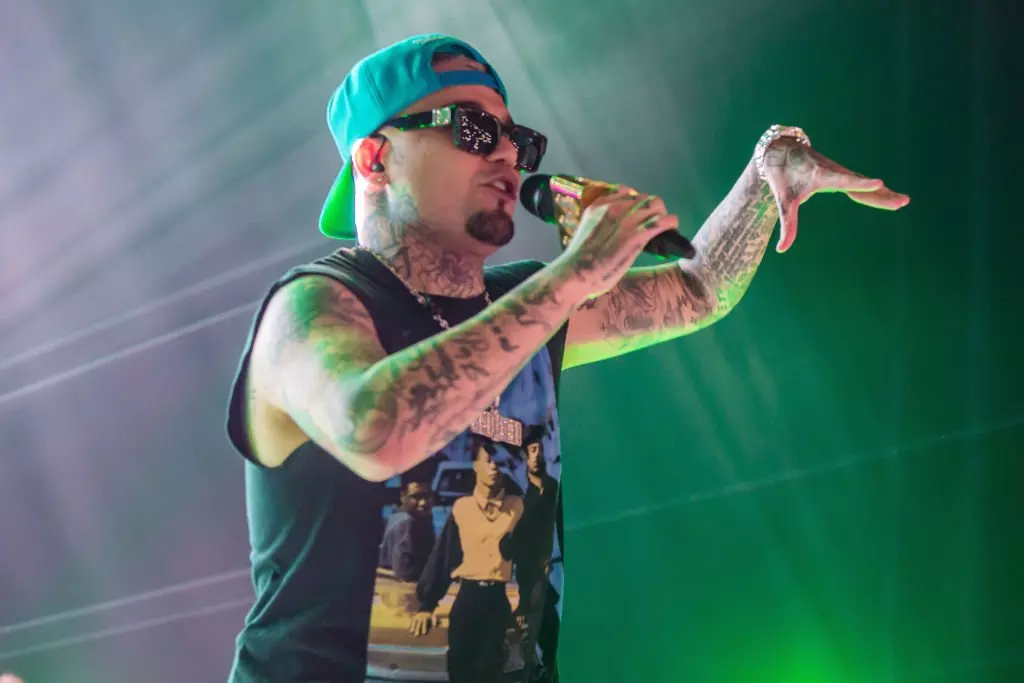
8 Latinx Rappers To Know: Eladio Carrion, Young Miko, Akapellah & More
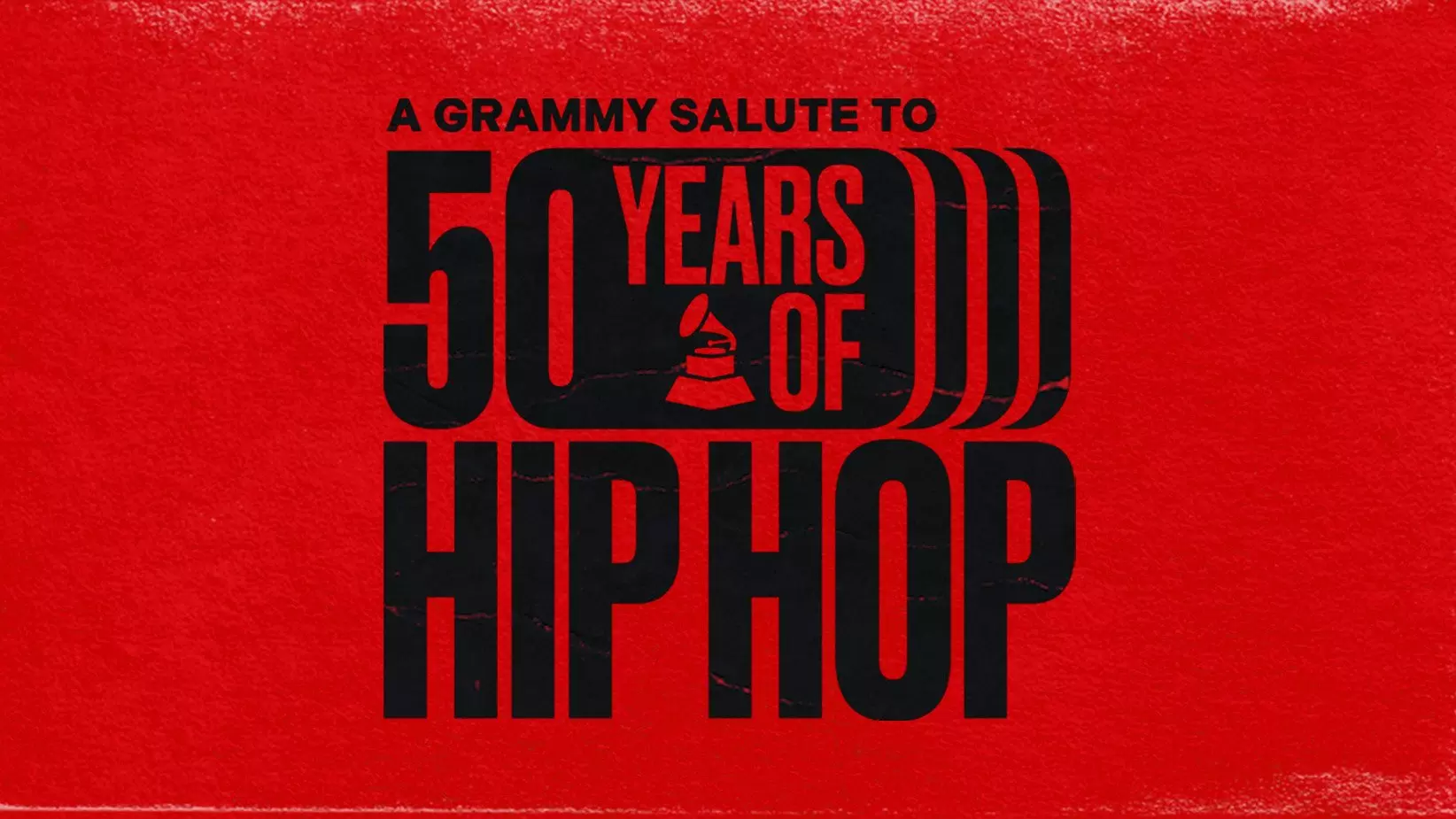
Additional Performers Added To "A GRAMMY Salute to 50 Years of Hip-Hop" Live Concert Special: 2 Chainz, T.I., Gunna, Too $hort, Latto, E-40, Big Daddy Kane, GloRilla, Three 6 Mafia & More Confirmed
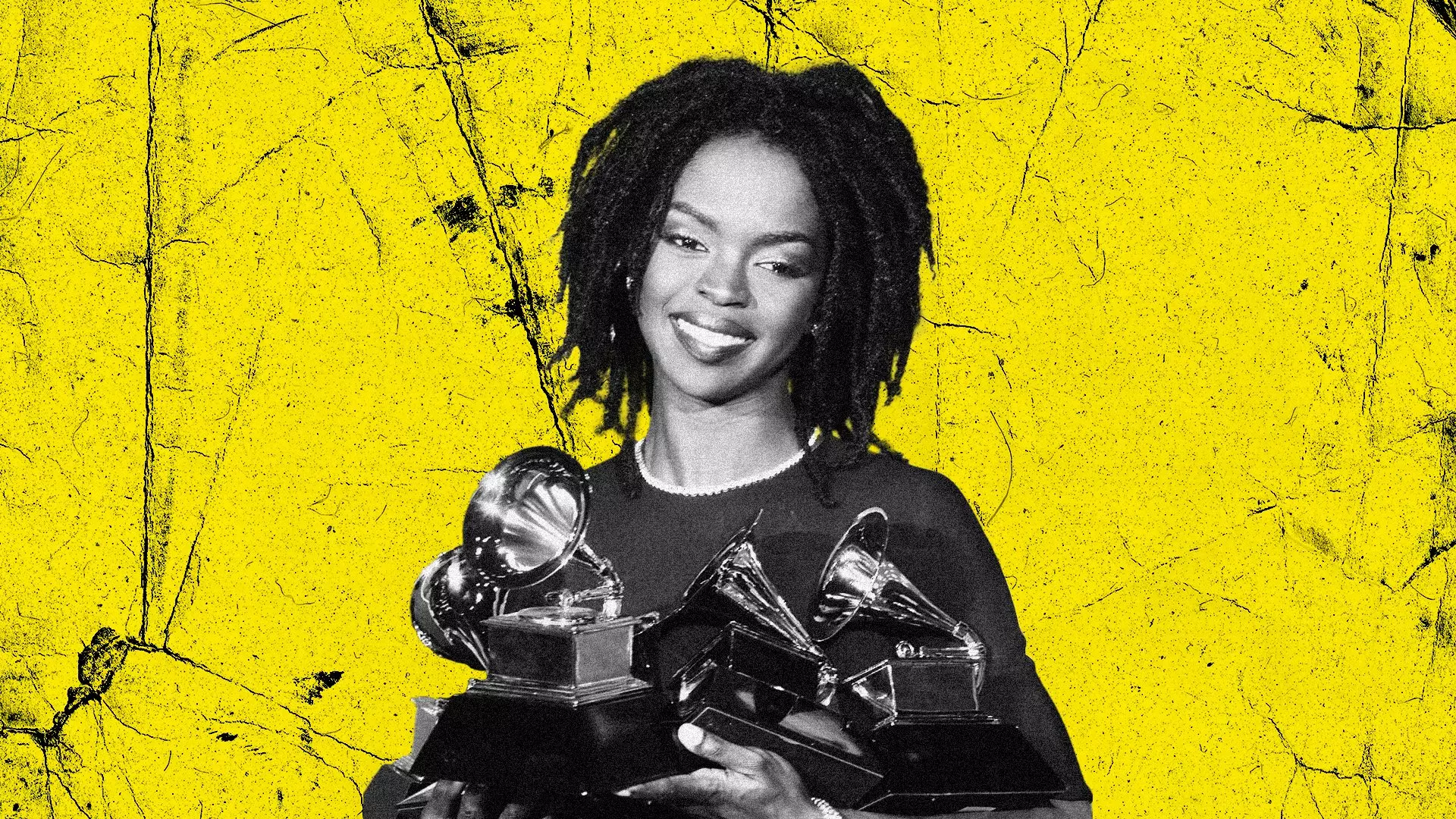
GRAMMY Rewind: Watch Lauryn Hill Win Best New Artist & Quote Scripture In 1999
To bring it all the way up to now to "King King," which wasn't really planned to do as let's do a song for women, and now let's do a song for men. It didn't go like that. And when I tell you that "King King" and "Thank You" I wrote in bed at about 1 o'clock in the morning — it was just God downloading the lyrics so quickly. I couldn't even believe it. As I was writing it, I was like, oh my goodness. It's gonna stop. It won't stop.
Having this kind of conviction for your testimony speaks to the spiritual nature of your music. How else does that influence your work?
It brings people together. I think it just falls to me in a space of responsibility. It's not anything that's separate from me. Often I'll let the music lead me. And if I listen to a track, and it's like, oh, this is great. But it doesn't incite power or purpose, I'll put that track to the side. When I'm ready to just rap about nothing or rap about how dope I am, I'll pick that up. But when I'm looking for something that I want a message attached to it, the music literally will lead me into the place where I need to be open to whatever God puts on my heart.
So much of what is said in "Woman" is who I am. And same thing with "King King," it's what I believe. It's the times when I see guys in huge celebrations when they're winning, you know, trophies for basketball, and it is just like one of the most vulnerable moments to see them as they celebrate with their friends. You can see the pain and the anguish and the triumph and the tears. And it just brings chills all over my body.
To see that from these men that usually have to have these hard faces with this stance that's so mighty and strong. That's how I feel about, specifically men of color. No no one knows him. And so I wanted to celebrate them and then also their walk towards responsibility and not shying away from what it means to be in a long lasting, loving relationship.
What about your relationships with men in hip-hop? I know you and Rakim just performed together on the same stage at Rondos Day in St. Paul, Minnesota.
The interesting thing about Rakim, he's probably one of the emcees I know the least about, on a personal level. But yet, whenever we're in one another's company, we have such a high level of admiration and adoration for one another. It feels like we know one another really well. I really give honor to that. However, there are others like Biz Markie and Heavy D and Chuck D and KRS-ONE. These are my big brothers in the business.
Those are people that would just call me and say, "What is going on? How are you feeling?" Or they'll see some performance… That's Big Daddy Kane. He's gonna tell me, "I like what you was wearing on there," or "I like the energy." It's all of these moments where I am the little sister. You know, they've seen me grow up in this business. And many times over, they've assisted in some capacity.
It's so funny how many layers, relationships exist within hip-hop, and you may not know it because you don't see it. But we know that, you know, that connection is real.
Has your songwriting or creative process evolved through the years?
Yeah. Absolutely. There's a few things that have happened. One, when you're in the spell of writing, stay there. When I was younger…you leave a song open ended to have to try to find the same sentiment days later. And it may not be there. And so [I've learned] to stay still during the writing process. And then I've also learned much more melody than usual.
Coming from New York, we have a way of wanting to put all the words that we can find to show how dope and how advanced we are as emcees. And I think for me to be able to slow down on this record and find melody and nuances that weren't as important to me before, I think that it really benefited me with this record, and that's where I will give the credit to Warryn to push me.
I remember long ago, I was talking to Nelly, and I was about to embark upon a new album. It might have been 14 years ago. But what Nelly began to explain to me, is that "I lived in New York for a summer, you guys moved so quickly. It's no wonder you all rap like that." He said, "Where we're from, we're driving to our destinations." I think that was brought to the forefront for me here with this album. I'm not in a rush. I don't need a lot of tricks with what it is that I'm saying because what I'm saying is real. And it's important. I don't need a lot of influence. You know, I'm simply speaking. It's just real talk, and I think we haven't had that for some time.
You live in Los Angeles now, but do you get back to New York?
I've lived in Brooklyn. I've lived in Manhattan. I've lived in Queens, and I've lived in Jersey. And then I came to California. I've been in California for some time now. But I go back and forth often enough that I don't really feel like I'm missing anything. I'm going back this first week of August, which is pretty exciting, doing a lot of press for the album, and then also, performing at Wingate Park, which is where I attended high school.
**Speaking of, where are we going to see MC Lyte performing soon?**
I'm on the Queens of R&B tour. So we did Atlanta, Charlotte, New York, and then Madison Square Garden. There's going to be a show [in Los Angeles] at the [Kia] Forum. Cincinnati Music Festival, I'm performing out there, and I'm doing "King King," bringing them, you know, some new music at the same time, which is pretty exciting.
You also have a full plate with your other endeavors: acting, voice overs, mentorship. Do you get fuel from these different activities to inspire the other work you do?
Absolutely. I'm actually on set now. I played detective Monroe in a [BET] show called "Angel." I'm on set all week with this.
We have a full fledged production and management company [Sunni Gyrl]. Right now, our premier talent is Van Van, who is an internet sensation turned actor, recording artist. She's actually 5; she just released her first album. She also plays a character called Vancy with Snoop Dogg on Doggyland.
We've got other talent, gospel singers, Dave Hollister. And then production wise, we had a sitcom that I wrote ["Partners in Crime"], and we did some really great things with that with AMC. And now we've got a few deals around town with different projects, TV shows, cooking shows, competitive shows. I just signed on to be music supervisor for a short film called The Memo, by a new company called A Seed Productions and it's pretty powerful. I'm looking forward to all that comes from that.
But, yeah, each day it's a different hat. It makes it completely exciting.
What drives you to continue to commit yourself to mentorship and fostering new talent in the next generation through all that you're doing through Sunni Gyrl?
It just feels it feels like the right thing to do. I don't know any other way. And it's crazy because I meet people all the time that had met me at a younger age. And they say to me, "You said this to me and that really mattered at that time. I wanna tell you what it did for me."
My close friends would call me grandma because I'm always imparting something that can be used later — and I don't even know that I'm really doing it. I'm just talking. It's just the idea of never being afraid to share your weaknesses and your shortcomings. Just being an open book to help someone else get to the next step, the next phase.
There have been some autobiographies that I've read throughout time, and you know the ones that are just ink on the page. And you know the ones that had to see past their tears to actually write it. And that alone is what brings people closer to you. It's the human bond. And if you're willing to just be that open book, so many people can learn from what it is that you're saying. And it may not even be what you're saying. It could be the cornerstone for them to go get the knowledge or, you know, educate themselves about something completely different. I think as an emcee, I have to really be in tune with the power that I have and that words are powerful and have meaning. And so why not use them, responsibly and purposefully?
Can you tell me a bit more about the importance of listening? And have you always felt like a good listener?
No. Even now, it's still a struggle with me. You know, acting is all about listening.
I think a lot of times [what] we do in life is we take the part that incites some sort of reaction, and then we don't even pay attention to what was said before or after. For me, it's important that I slow down in order to listen. Because first off, I'm quick. And so are a lot of other people.
I've tasked myself each and every day with slowing down enough to listen.
Listening during acting has taught me how to listen in life. And that not everything said deserves a response or requires a response. It's the admittance of not knowing that's humbling.
How do you find the energy? What is the source of this well that you're continually pouring from?
The source: God. That's all I can attribute it to, because it's certainly not me. I just allow myself to be used as the vessel to get the thing done. It's a part of the dream. So while I'm doing it, I'm just grateful like, wow. I asked for this. Oh, yeah. And I asked for that. And so I only ask that God give me the wherewithal to handle it as it comes and also to say no to the things that I just don't have time to do and don't fulfill the ultimate goal.
What artists today are you excited about or you're listening to?
I love what Common and Pete Rock are doing right now. Rapsody, Tierra Whack. I listen to a lot of people in terms of Kendrick, in terms of Drake. And, I listen to Tems.
I just hope that the new artists coming in today find their strength at an earlier turn than a lot of us.
A lot of times, I believe artists understand who they are much more when they've gone out into the world and understand how blessed they are to even be in the position to speak their minds. There are plenty of places where not just women, but anyone who wants to speak out against the system, or disagree with a certain politic, or a political stance, or political agenda [cannot].
What other advice would you give a younger you or artists coming up now?
Surround yourself with people that have your best interest. And when you're young, you don't really know who those people are. But I would just say what you see, believe it. And you can see things much better than what you're told. Because people lie. Unfortunately, if everybody told the truth, then I wouldn't have to advise you to watch people show you much better than they tell you anything.
There's always room for improvement and to stay focused on what it is that you started out with. Because many times, there will be distractions. There will be distractions along the way, and you wanna make sure that you reach the intended goal. And know what you're in it for.
More Rap News
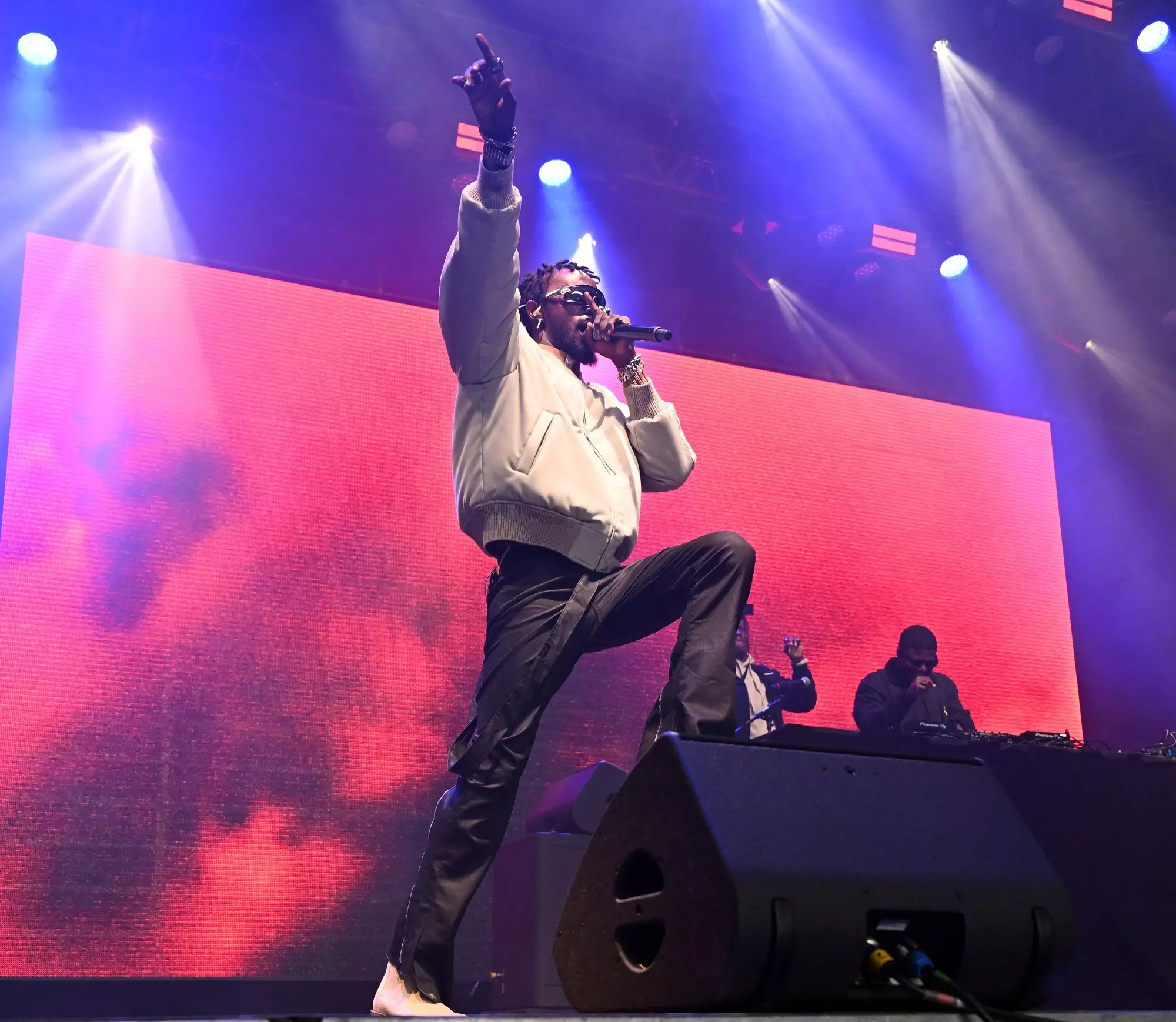
10 Artists Essential To Ghanaian Hiplife: Reggie Rockstone, Sarkodie, Mzbel & More

Ice Spice Is The Drill Queen On 'Y2K!': 5 Takeaways From Her Debut Album

Watch Young MC Win Best Rap Performance In 1990

On Rakim's 'G.O.D's Network (REB7RTH)' The MC Turned Producer Continues His Legacy With An All-Star Cast

5 Ways Mac Dre's Final Living Albums Shaped Bay Area Rap
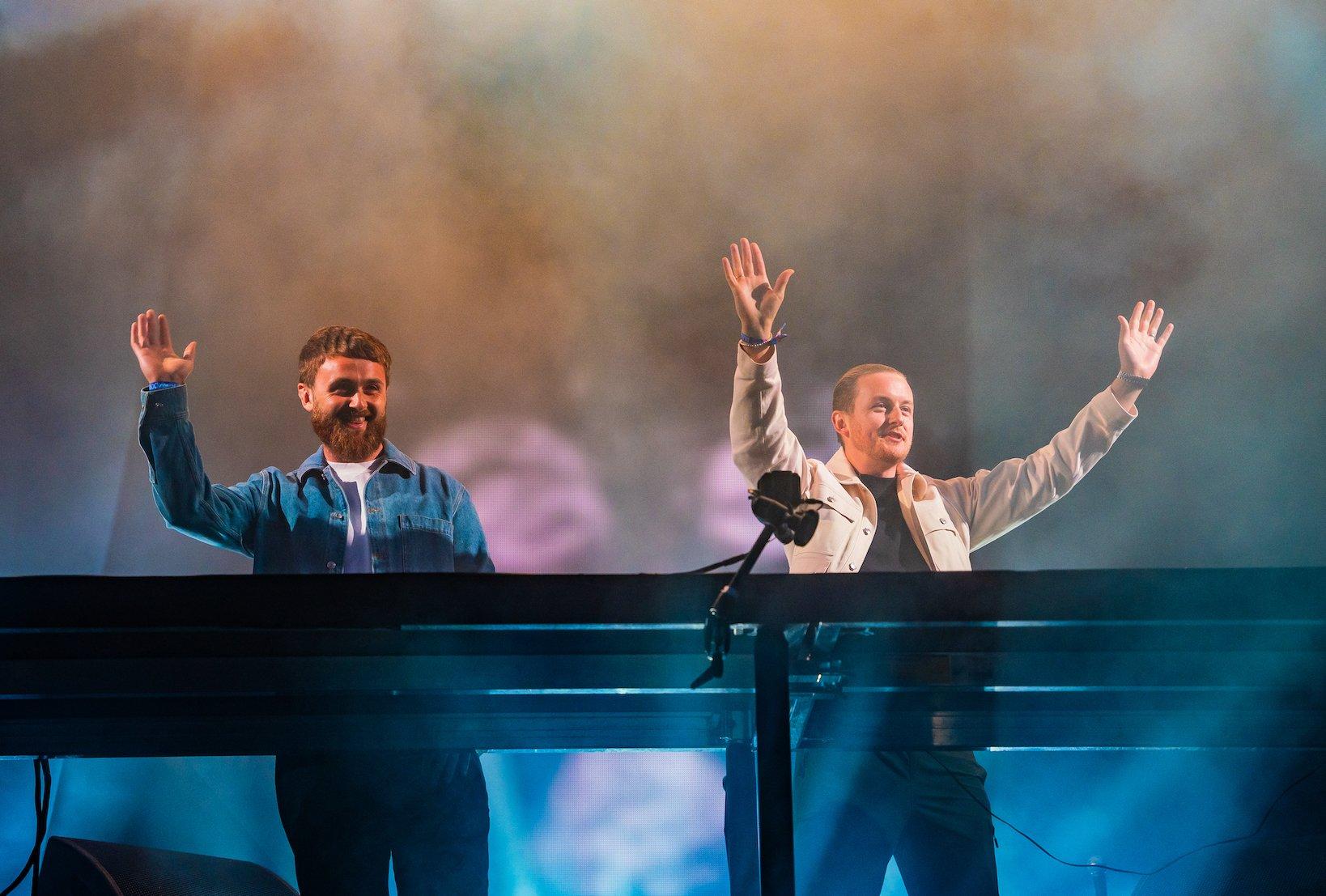
Photo: Venla Shalin/Redferns
news
10 Cant-Miss Sets At HARD Summer 2024: Disclosure, Boys Noize, INVT & More
The L.A. festival is famous for bringing an array of electronic sounds, from dance-pop and experimental techno, to classic house and rare back-to-backs — and this year's lineup features some of the biggest and buzziest acts in dance music.
When it comes to American dance music culture, few events carry the cool cache of a HARD party. Founded on New Year's Eve of 2008 by DJ and former label A&R Gary Richards, the name HARD has become synonymous with taste-making, offering fans an enviable mix of influential headliners and cutting-edge up-and-comers.
HARD parties have been a breakout platform for luminaries like Justice, Skrillex, deadmau5, and more, and the HARD Summer festival is one of the brand's most celebrated flagship events. In 2017, HARD was absorbed into the Insomniac festival family — the same company that brings fan-favorites EDC Las Vegas and Electric Forest to life — which ensures the stage production, on-site activities and other ancillary fun are sure to be supersized. How many festivals do you know that offer a Ferris wheel and a swimming pool?
Coming to Los Angeles' Hollywood Park near SoFi Stadium on Aug. 3 and 4, this year's lineup continues the tradition of blending authoritative artists, legacy DJs and unique back-to-back headliners with buzzy newcomers in a variety of genres and styles.
Whether you wanna rave out with club king Jamie xx, bang your head to bass with Zeds Dead, get tropical with Major Lazer, see what it sounds like for UK grime star Skepta to DJ, or just sing along to mid-2000s belters courtesy of dance-pop crossover queen Nelly Furtado, there's something to please every palette. Of course, in true HARD tradition, we seriously recommend exploring the undercard, because the biggest name in electronic music tomorrow is probably playing one of the HARD side stages today.
While you wrap your head around the stacked lineup, check out a quick guide to 10 must-see acts below.
Boys Noize
A legend on the decks who can play blissful disco or teeth-shattering techno with a smile, Boys Noize is a must-see on any lineup simply because he loves doing the job. He recently teamed with Skrillex on the anthem "Fine Day," and released an entire EP with alt-rap icon Rico Nasty. He's also the producer behind Lady Gaga's beloved Ariana Grande collab, "Rain On Me," and Playboi Carti's "Unlock It," but he's likely to unleash a massive set of hard techno bangers for the L.A. crowd — though you never can tell which direction he'll take you in next, so come with an open mind.
Disclosure
As the top-billed headliner for Saturday night, Disclosure should need little to no introduction to any modern dance music fan — but that doesn't mean you should sleep on their set.
Howard and Guy Lawrence emerged on the scene as seemingly an instant success. The brothers' debut album, Settle, almost single-handedly changed the landscape of popular dance in 2012, moving the taste du jour away from the big-room EDM and bass-heavy trap sound toward a UK garage revival that still carries, and helped launch Sam Smith's career in the process.
In the 12 years that followed, Disclosure has continued to push the envelope — and themselves — working with cross-genre heavyweights including Lorde, Khalid, Miguel, Kelis, Slowthai, and The Weeknd, as well as incorporating international sounds and styles into their club-driven house grooves. Earlier this year, Disclosure returned with the dance floor-ready single "She's Gone, Dance On," announcing themselves as arbiters of disco-laced funk and good-time DJs for 2024 crowds. Surely they'll be in top form come HARD Summer.
INVT
If you like your dark techno to come with a side of hip-shaking Latin rhythms, Miami-bred duo INVT is the experimental sound machine you can't possibly pass up. Luca Medici and Delbert Perez have been best friends since they were kids, and that closeness comes through in their tight experimental sets, blending booming bass with glitched-out techno synths, cumbia rhythms, dembow beats, and acidic edge.
INVT are — as the name may imply — extremely innovative, leaning into their own productions and edits to curate an approach that feels hypnotic, exciting and unique. If you're not afraid of beats that go really hard and get a little weird, this is a set that can set your wild mind ablaze.
Rezzmau5
What happens when you put two of the most unique and hard-hitting producers in electronic music together on one stage? Deadmau5 is one of the scene's leading icons, and Rezz (who released her debut album of deadmau5's Mau5trap label in 2017) shifted bass music culture with her gritty, techno-fueled, half-time sound. The two share a love of dark, stomping, left-field noise, and after years of teasing possible collaborations, those shared interests merged on the 2021 collaboration "Hypnocurrency." Two years later, they released the booming, dystopian 2023 single "Infraliminal" — not just a brilliant rework of deadmau5's 2012 track "Superliminal," but the official introduction to Rezzmau5.
Rezzmau5 haven't released anything since, and live performances from the duo have remained few and far between. But the monolithic duo just warmed up their trippy joint live show at Tomorrowland 2024, which was set in "the mythical realm of Silvyra," a world "filled with creatures, plant life, and people living in harmony." Whether or not their HARD set follows the same storyline, it's certain to shake the skulls of every dancer at Hollywood Park. Prepare your body for something deep, dark and maniacal.
Elderbrook
There aren't many electronic acts that bring the same level of frontman energy that Elderbrook boasts on stage. A multi-talented performer, the UK artist sings and plays instruments, creating a rock-show experience unlike most sets at heavily electronic festivals like HARD. He leads the crowd in heartfelt sing-alongs to hits including "Numb," "Something About You," "Inner Light" and, of course, his megahit CamelPhat collab "Cola."
Bouncing between his microphone, synthesizers and keyboards, samplers and drum pads, his one-man band performance is sure to draw a serious crowd. If you're ready for a break from the hard-edged rave noise and want to ascend to heavenly heights, Elderbrook is the man for the job.
Fisher + Chris Lake (Under Construction)
Nothing is more fun than watching two best mates go absolutely nuts on the decks. And when two stellar DJs go back-to-back, everyone wins, because they spend the whole set trying to impress each other.
Chris Lake is one of the most influential producers in tech house. Fisher is one of the most unhinged and energizing DJs one can ever witness. Together, the besties deliver an over-the-top party with an arsenal of mind-numbing drops, weirdo grooves and just-plain fun vibes that make you wanna hug your friends and dance 'til you sweat. The set is called Under Construction, but make no mistake: these two have completely mastered the blueprint.
JYOTY
If you like your sets to be playful cross-genre explorations of sounds from around the world — tied together by booty-shaking beats and booming bass lines — JYOTY is sure to check all your boxes. She knows how to lead a great party because she spent her childhood frequenting the unmatched clubs of Amsterdam. And with an ethos built around playing whatever the heck she wants, she's comfortable dropping a bit of hip-hop into some Brazilian bops, mixing it up with hard breakbeats, blistering rave synths and more.
Kerri Chandler
If you don't know your history, you're doomed to repeat it, but no one brings the house down quite like Kerri Chandler. A pioneer of the original deep and garage house movements, Chandler was a foundational DJ of the '80s scene, holding down a residency at the legendary Club Zanzibar in New Jersey and founding the MadHouse Records label. If you want to feel the soulful spirit that made electronic music what it is, Chandler's dreamy mix of feel-good melodies served over kickin' club beats are a direct line to house music's roots.
Mary Droppinz
You know how Mary Poppins had a magical bag that held everything from a hat rack to an ornate mirror, a house plant and a Tiffany lamp? Well, California DJ Mary Droppinz comes equipped with a magical USB that's positively bursting with mean beats and original edts.
This woman can blend everything from grimy bouncing bass to ethereal orchestral house, Spice Girls reworks, drum'n'bass bangers, reggae upbeats, '90s R&B remixes and chart-topping hits of the moment twisted into face-melting heaters. You can try to guess where she'll go next, but it's better to just let her take control and follow the vibe through all the devious twists and turns. The one thing you can count on? You'll leave her set dripping with sweat.
Overmono
Disclosure aren't the only brilliant UK brothers on the HARD Summer lineup. Overmono's Tom and Ed Russell hail from Wales and make some of the most inspired club records of our time.
With backgrounds exploring hard techno, drum'n'bass and rave, the brothers combined their talents in 2015 and have since created an enviable blend of soulful atmospheres and frenetic breakbeats that feels nostalgic and sentimental, but still very heavy. Overmono's 2023 album Good Lies is a great play from start to finish, and a good way to get prepped for their critically acclaimed live set. If you need a big-name co-sign, Overmono was recently featured on Fred again..'s "Stayinit" with Lil Yachty on the vocal. That's the caliber they're rockin' with — and the prestige they'll bring to HARD Summer.
Latest Music Festival News
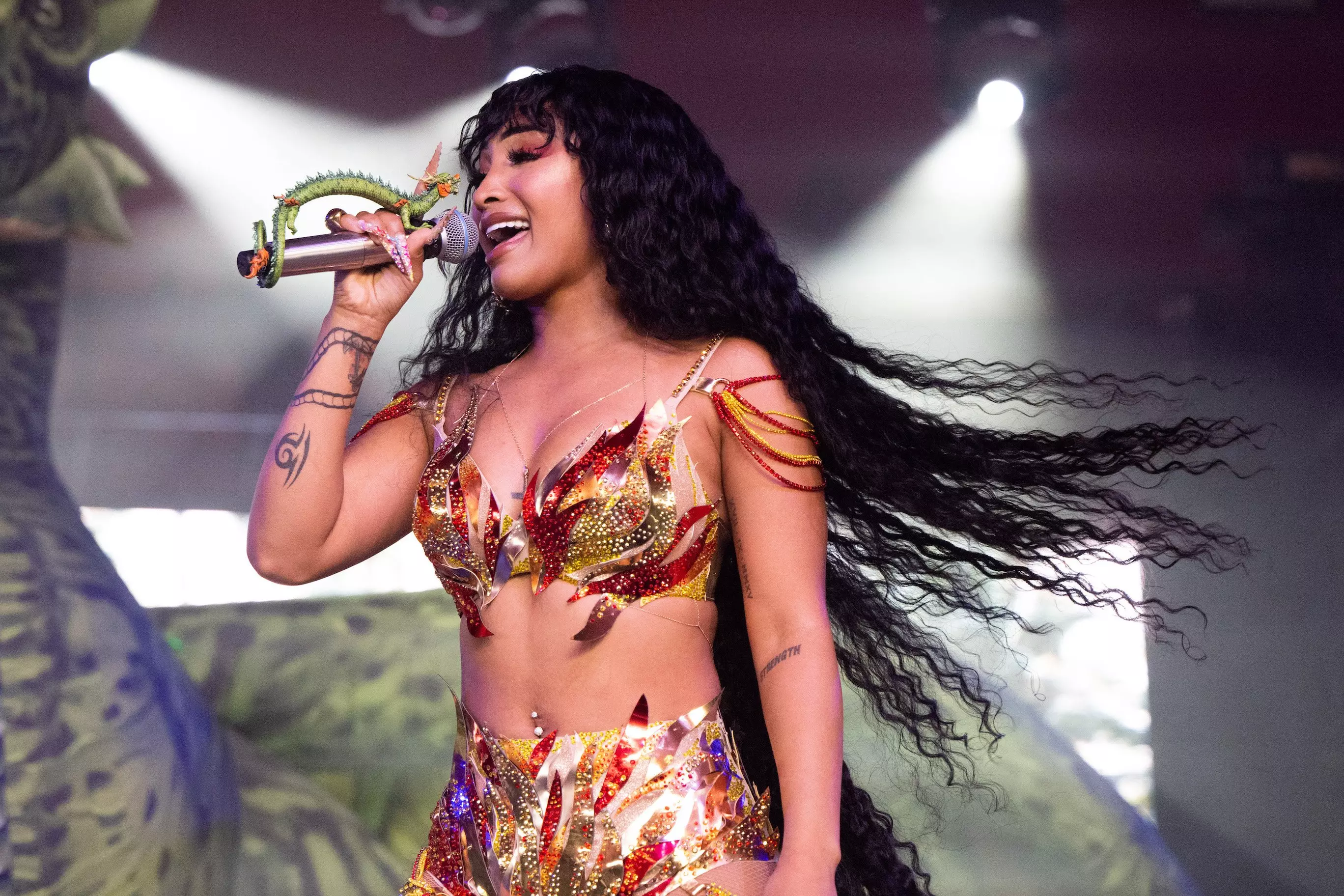
8 Can't-Miss Acts At Afro Nation Detroit 2024: Shenseea, Ayra Starr, Kizz Daniel & More
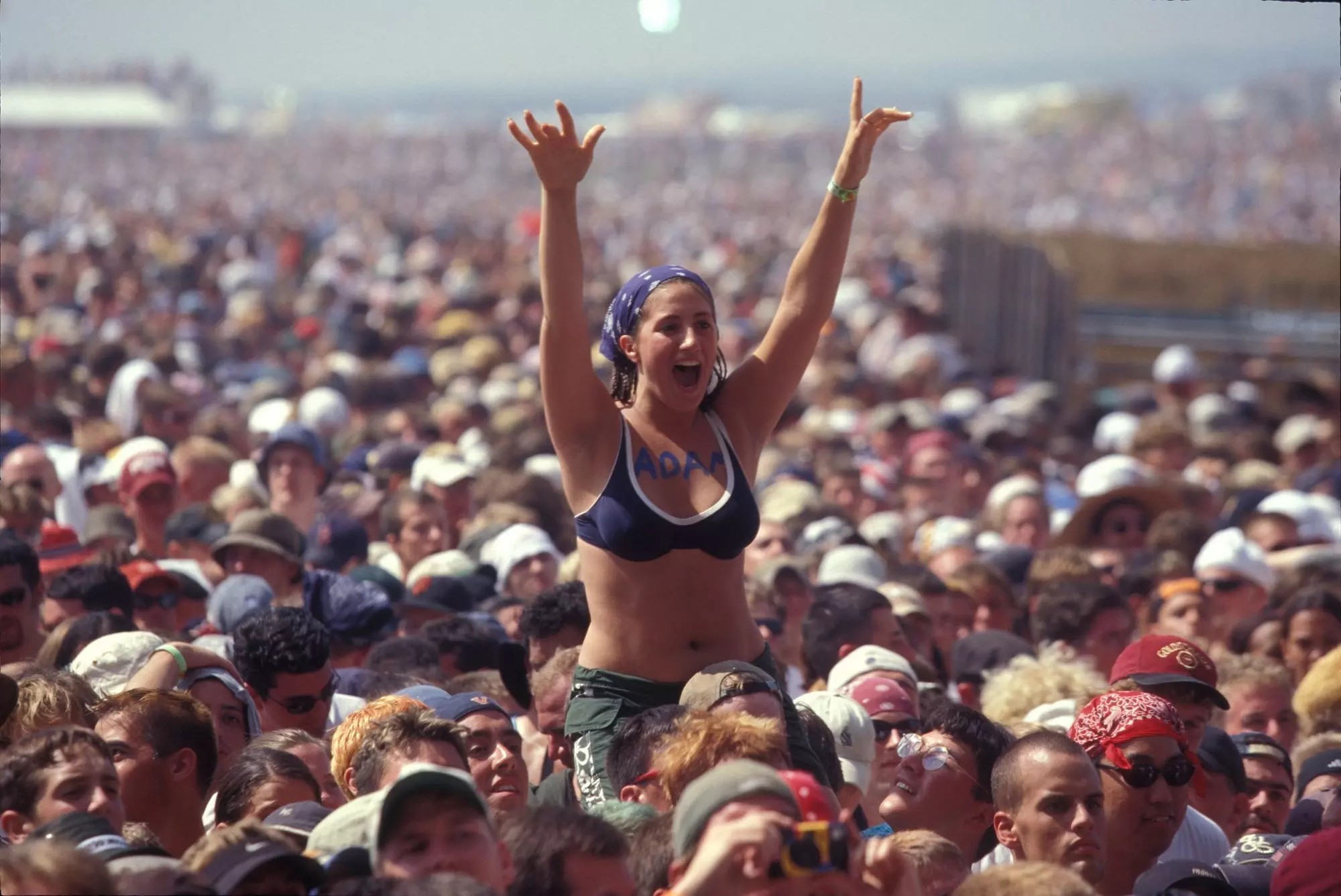
On This Day In Music: Woodstock '94 Begins In Upstate New York
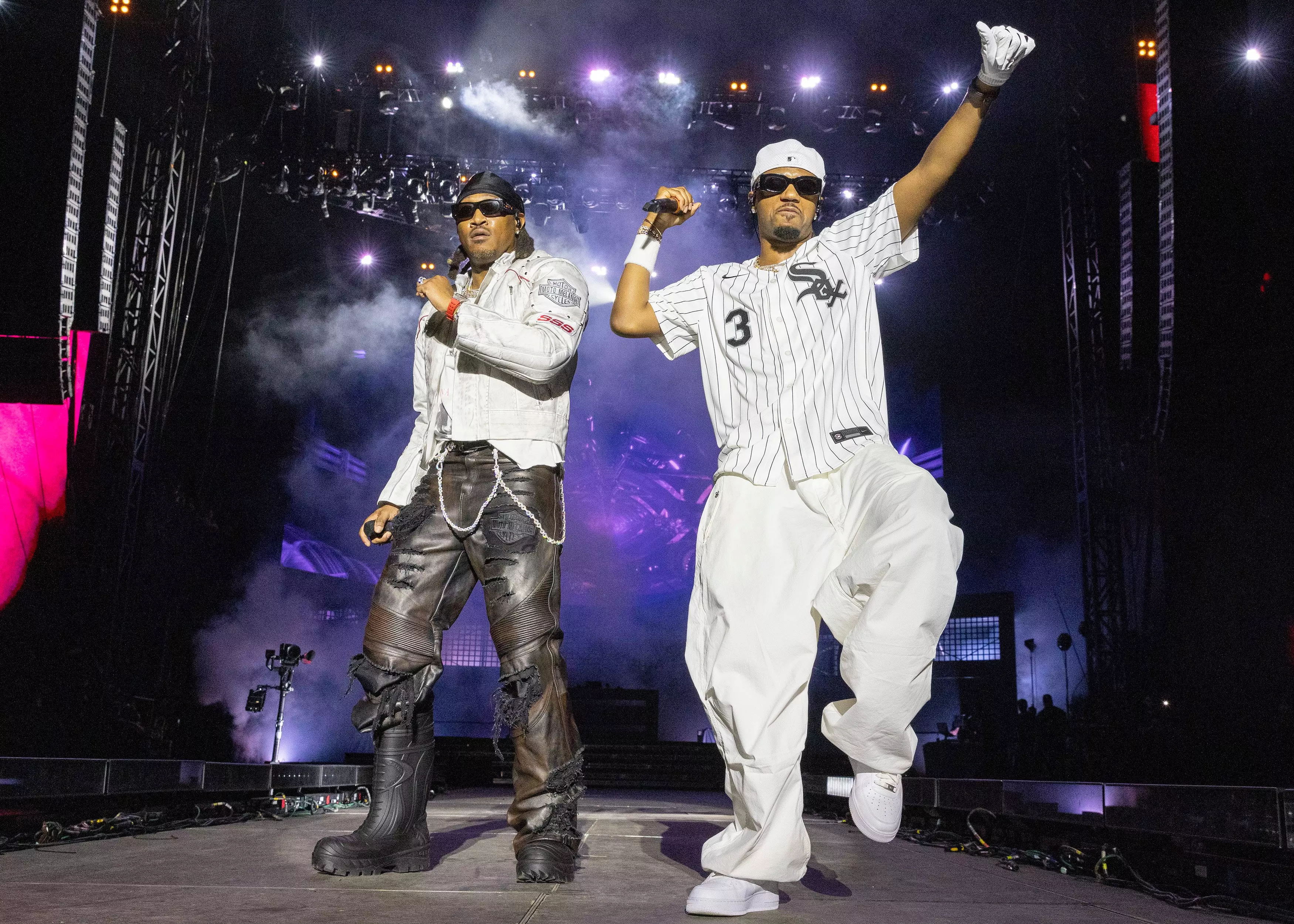
7 Stellar Sets From Lollapalooza 2024: Megan Thee Stallion, Future x Metro Boomin & More
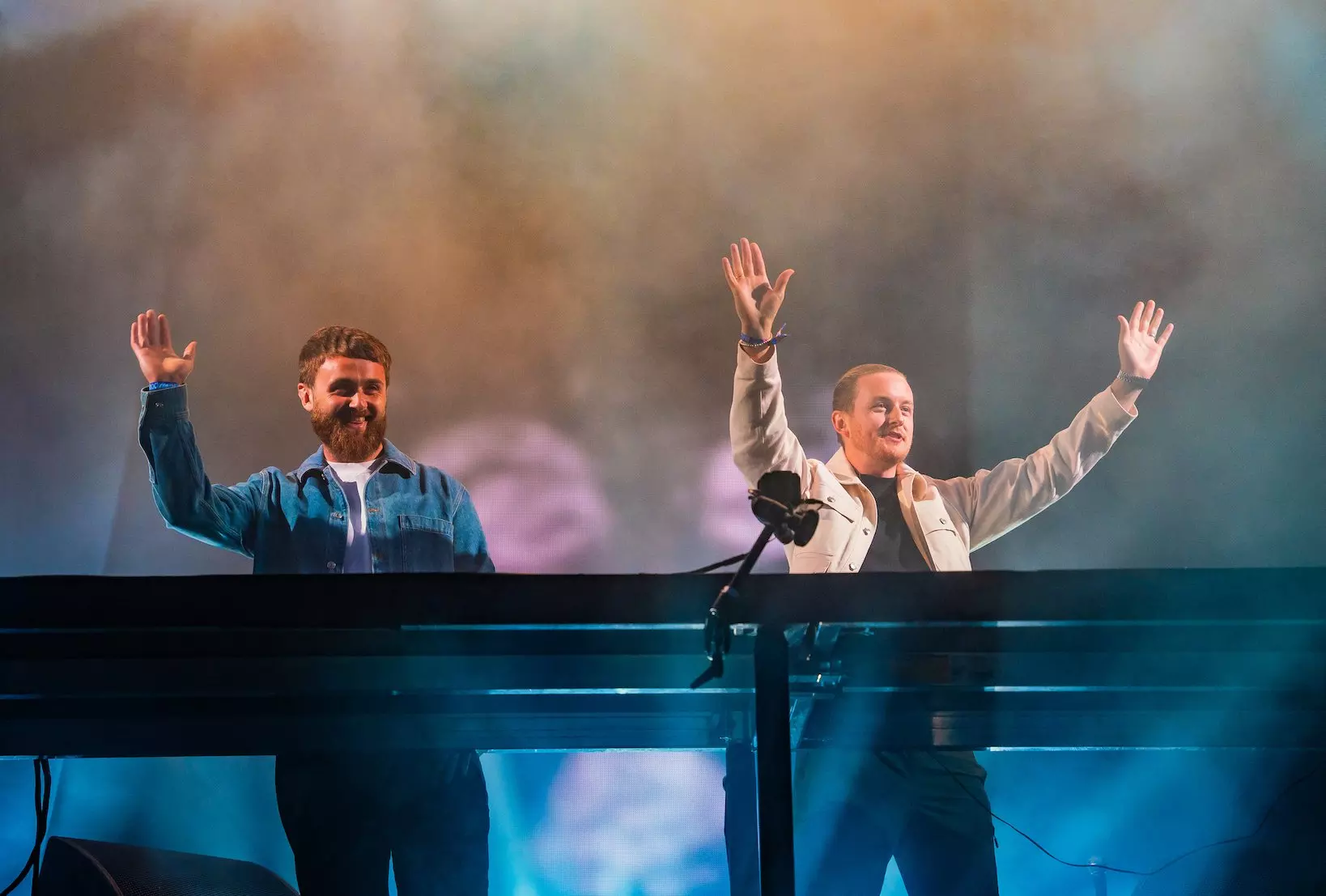
10 Cant-Miss Sets At HARD Summer 2024: Disclosure, Boys Noize, INVT & More
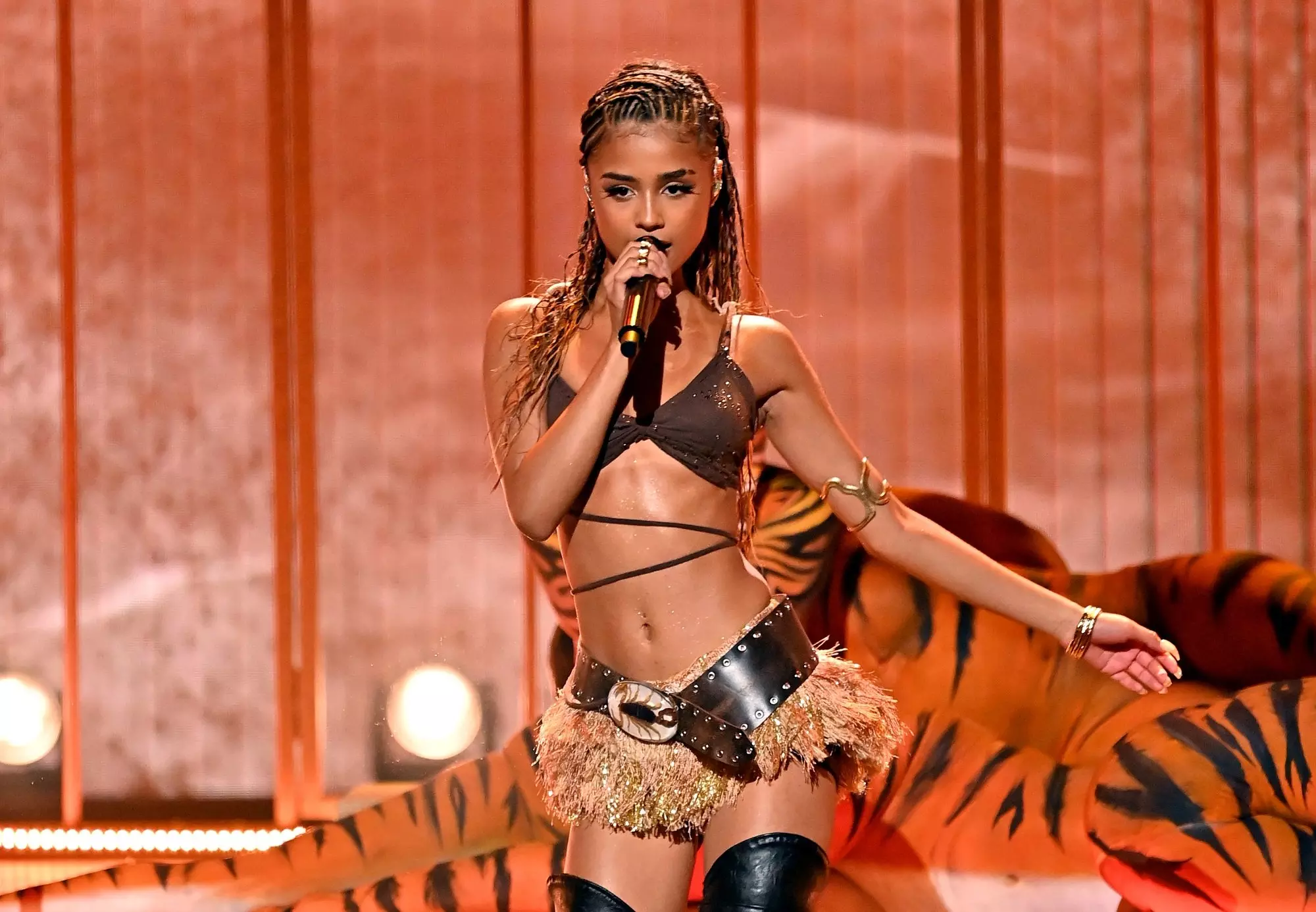
10 Must-See Acts At Lollapalooza 2024: Tyla, SiR, Stray Kids, Dominic Fike & More
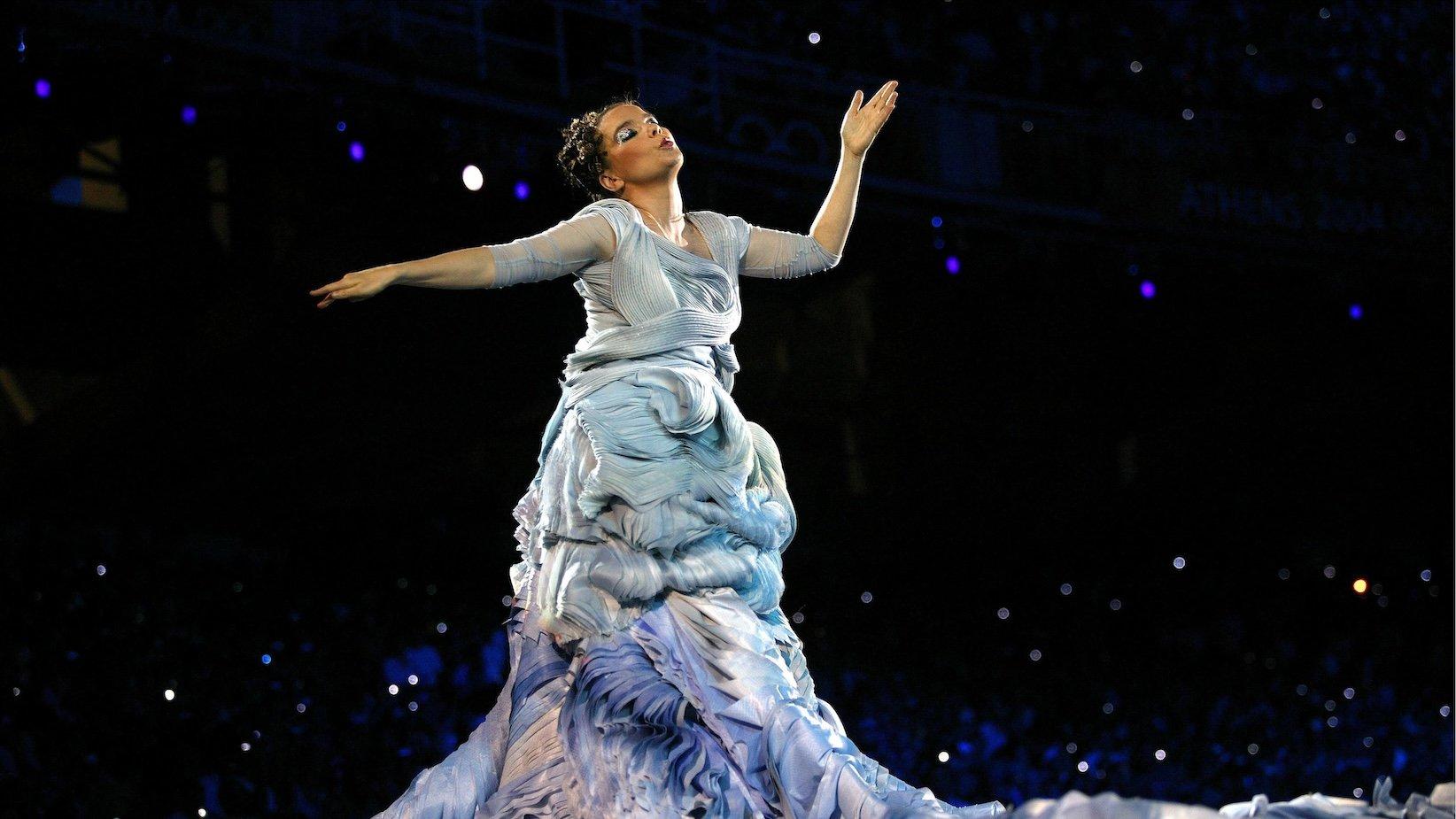
Photo: Mick Hutson/Redferns
list
When The GRAMMYs & Olympics Align: 7 Times Music's Biggest Night Met Global Sports Glory
Before the Olympic Games begin in Paris on July 26, dive into the intertwined history of gold medalists and golden gramophones.
The GRAMMY Awards and the Summer Olympics are unarguably the pinnacles of their respective fields. Indeed, most recording artists dream of making an acceptance speech for their magnum opus during the biggest night on the music industry calendar, while athletes competing in any of the Games’ 32 different disciplines are continually motivated by the lure of the podium.
But how often have the two intertwined since the first GRAMMY ceremony took place a year before Rome 1960?
Well, perhaps more than you think. Sure, the musical efforts from basketballers Shaquille O’Neal (gold at Atlanta 1996), Kobe Bryant (gold at Beijing 2008 and London 2012), and Damian Lillard (gold at Tokyo 2020) might not have registered with the Recording Academy. Likewise, those from track and field hero Carl Lewis (nine golds and one silver from four consecutive Games), light middleweight boxer Roy Jones Jr. (silver at Seoul 1988), and near-superhuman sprinter Usain Bolt (eight golds from Beijing, London, and Rio 2016).
But there are a handful of sportsmen (sadly, not yet sportswomen) who have competed for both gold medals and golden gramophones. There are also pop stars who have attempted to capture the blood, sweat, and tears of the quadrennial spectacle in musical form — whether as an official anthem, television theme, or simply a motivational tool — and been rewarded with GRAMMY recognition for their efforts.
With the Olympics’ return to Paris just around the corner (July 26-Aug.11), what better time to celebrate those occasions when the Games and the GRAMMYs align?
Gloria Estefan & Björk's Themes Pick Up GRAMMY Nods
It seems fair to say that Gloria Estefan, the Cuban hitmaker who helped to bring Latin pop to the masses, and avant-garde eccentric Björk, wouldn't appear to have much in common. They have, however, both received GRAMMY nominations in the Best Female Pop Vocal Performance category for their respective Olympics themes.
Estefan was recognized at the 1997 ceremony for "Reach," the gospel-tinged power ballad that embodied the spirit of the previous year's Atlanta Games. Iceland's finest musical export picked up a nod for "Oceania," the swooping experimental number she co-produced with Warp label founder Mark Bell which helped to soundtrack the opening ceremony of Athens 2004. And both went home empty-handed, the former losing to Toni Braxton's "Un-Break My Heart" and the latter to Norah Jones' "Sunrise."
Whitney Houston's Momentous Live Performance
The incomparable Whitney Houston might not have added to her GRAMMY haul at the 1989 ceremony — Tracy Chapman's "Fast Car" prevented her from converting her sole nod, Best Female Pop Vocal Performance, into a win — but she still stole the show. Houston owned opened the 31st GRAMMY Awards with a performance of "One Moment in Time," the nominated track that had defined NBC's coverage of the Seoul Games.
Co-written by Albert Hammond, produced by Narada Michael Walden and featuring the London Symphony Orchestra, the UK chart-topping single certainly had a first-class pedigree. But it was Houston's lung-busting vocals that made the torch song such a sports montage favorite. The iconic diva once again stirred the emotions on the music industry's biggest night of the year with a rendition that's since become a staple of her many hits collections.
Oscar De La Hoya Swaps Ring For Recording Studio
Shakira fought off some interesting company to win 2001's Best Latin Pop Album GRAMMY. Alongside records from Luis Miguel and Alejandro Sanz, the category also included Christina Aguilera's first Spanish-language affair, and a bilingual effort from champion boxer Oscar De La Hoya.
The American became a national sensation overnight when he won the men's lightweight boxing gold at the 1992 Barcelona Olympics. But despite new material from seasoned hitmaker Diane Warren and a cover of Bee Gees' classic "Run to Me," his 13-track self-titled debut didn't exactly set the charts alight. Despite the GRAMMY nod, De La Hoya hasn't entered the recording studio since.
Muhammad Ali Is Recognized For His Way With Words
But when it comes to GRAMMY-nominated boxers, then the man who famously floated like a butterfly and stung like a bee is undoubtedly the don. Shortly before he changed his name from Cassius Clay to Muhammad Ali, the light heavyweight gold medalist of the 1960 Rome Games was recognized for his amusing repartee in the Best Comedy Performance category. Hailed by some as a progenitor of the rap artform, I Am the Greatest lost out to a man slightly different in stature: portly parodist Allan Sherman.
And the sporting icon also had to experience another rare defeat 13 years later when his reading of The Adventures Of Ali And His Gang Vs. Mr. Tooth Decay lost out to Hermione Gingold & Karl Böhm's Prokofiev: Peter and the Wolf/Saint-Saëns: Carnival of the Animals in 1977’s Best Recording for Children.
John Williams' Winning Olympic Fanfare
Legendary composer John Williams is one of the most-nominated artists in GRAMMY history having amassed 76 nods since his work on detective series "Checkmate" was recognized in Best Score Soundtrack for Visual Media in 1962. Two of his wins in this remarkable tally have been Games-related.
In 1985, Williams won Best Instrumental Composition for "Olympic Fanfare and Theme," which he wrote and arranged for the Los Angeles Games the year prior. In 1989, the conductor received a nod in the same category for "Olympic Spirit," another majestic instrumental produced for NBC’s coverage of Seoul '88.
Interestingly, Wiliams isn't a particularly avid sports fan, but as he told The New York Times, he can still relate to those going for gold. "The human spirit stretching to prove itself is also typical of what musicians attempt to achieve in a symphonic effort."
Magic Johnson’s Educational Guide Wins Best Spoken Word Album
Basketball appears to produce more aspiring musicians than any sport. Marvin Bagley III, Lonzo Ball, and Brandon Clarke are just a few of the NBA names to have released albums in the last few years. But the only time a hooper has been recognized at the GRAMMYs is for an audiobook.
The year before guiding Team USA to the men's basketball gold at Barcelona 1992, Magic Johnson had bravely revealed that he'd contracted HIV, defying the stigma that surrounded it at the time. The year after his Olympic triumph, the iconic shooting guard was honored for joining the fight against the disease. Johnson won the Best Spoken Word or Non-Musical Album GRAMMY for What You Can Do To Avoid AIDS, a compassionate guide designed to educate the youth of America whose proceeds went to the sportsman's eponymous foundation.
Chariots Of Fire Is Nominated For Record Of The Year
Based on the real-life exploits of British runners Harold Abrahams and Eric Liddell at the 1924 Paris Olympics, period drama Chariots of Fire won Best Picture at the 1982 Oscars. But it’s the titular number from Vangelis' anachronistic synth-based score that remains its crowning glory.
First played as the aspiring Olympians train beachside in the slow-motion opening flashback, the instrumental not only topped the Billboard Hot 100, it also picked up a GRAMMY nod for Record of the Year. "Chariots of Fire" has since become synonymous with the more modern iteration of the Games, appearing in the BBC's coverage of Seoul '88, gracing the start of the men's 100m final at Atlanta '96, and perhaps most famously of all, being performed at London 2012's opening ceremony by none other than Rowan Atkinson's rubber-faced buffoon Mr. Bean.
Read more: 10 Essential Vangelis Albums: Remembering The Electronic Music Pioneer
Latest News & Exclusive Videos
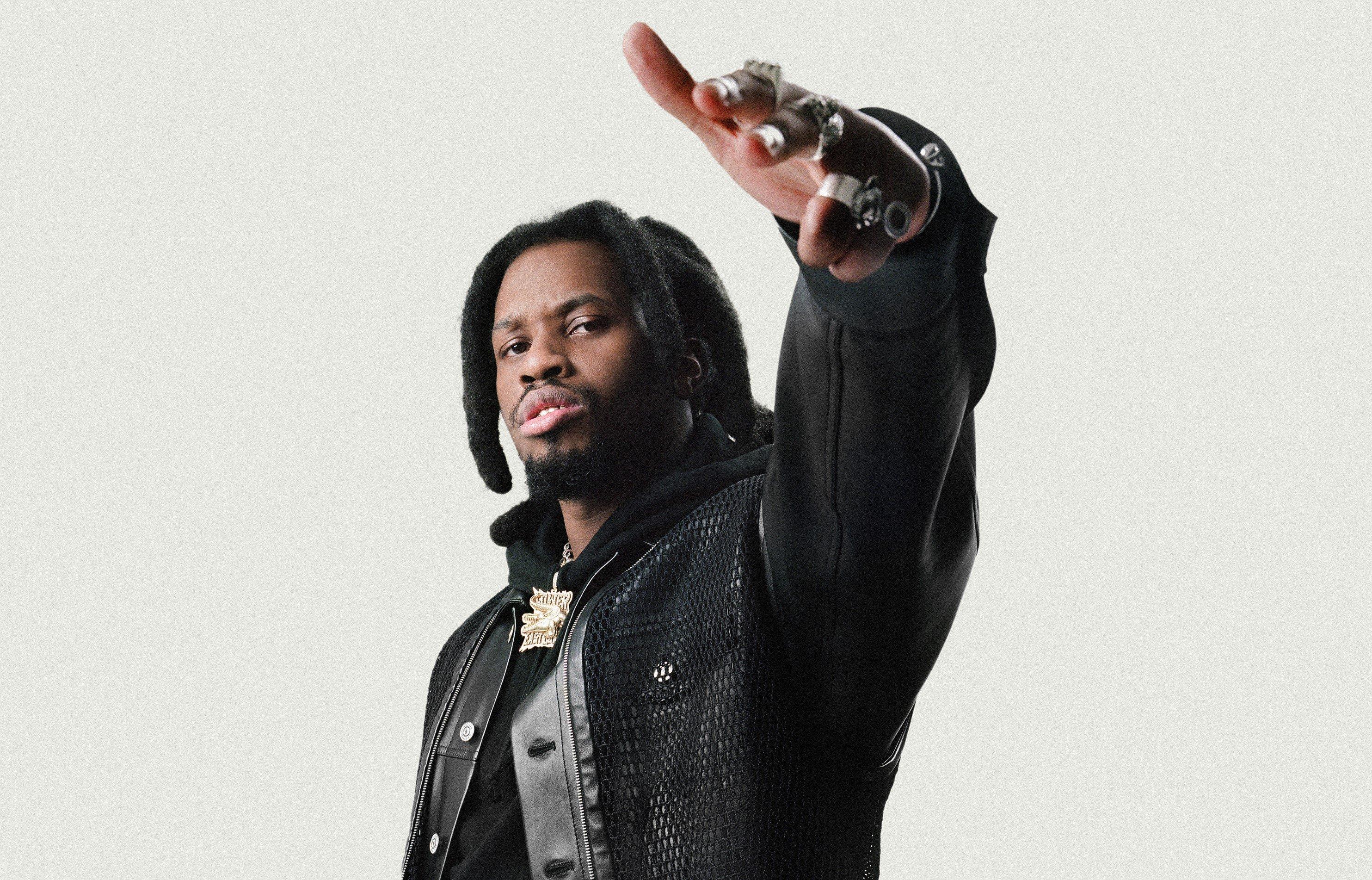
Photo: Giovanni Mourin
interview
Denzel Curry Returns To The Mischievous South: "I've Been Trying To Do This For The Longest"
Over a decade after he released 'King of the Mischievous South Vol. 1,' Denzel Curry is back with 'Vol. 2.' The Miami rapper details his love of Southern hip-hop, working on multiple projects, and the importance of staying real.
Denzel Curry isn’t typically one for repetition. His recent run of critically acclaimed projects have all contrasted in concept and musicality.
The Miami Gardens native has cascaded through boom-bap, synth-soaked trap metal, and cloud rap throughout his catalog. But on his upcoming project, King of the Mischievous South Vol. 2, Curry returns to the muddied, subwoofer-thudding soundscape that he captured on the first installment back in 2012.
Curry was just 16 when he released King of the Mischievous South Vol. 1 Underground Tape 1996]. "I was a kid, man," Curry tells GRAMMY.com. "I was just trying to emulate my favorite rappers at the time who really represented the South. That was pretty much what I was on at the time – the Soulja Slims, the No Limits, but mostly Three 6 Mafia. And then I just put Miami culture on top of that."
Curry first explored the rough-cut "phonk" of Southern acts like DJ Screw and Pimp C as a teenager. His first mixtape, King Remembered Underground Tape 1991-1995, caught the attention of then-rising rapper and producer SpaceGhostPurrp. He shared Curry’s project on his social media accounts, making him an official member of South Florida’s Raider Klan.
Read more: A Guide To Southern Hip-Hop: Definitive Releases, Artists & Subgenres From The Dirty South
The now-defunct group is well behind Curry, who’s ascended from the infancy of his early SoundCloud days to mainstream success. But the rapid-fire delivery and hazy, rough-cut sounds of early Southern rap are still soaked into his musical fibers.
Reignited by the same musical heroes that led to Vol. 1, Curry is comfortable in old sonic form. Vol. 2's lead singles "Hot One" (feat. A$AP Ferg and TiaCorine) and "Black Flag Freestyle" with That Mexican OT fully capture the sharp-edged sound that stretched from Port Arthur, Texas to the Carolinas.
The rapper wanted to go back to the KOTMS series nearly a decade ago, but other projects and outside ventures derailed his return. "I tried to do this thing multiple times," Curry tells GRAMMY.com. "I remember revisiting a [social media post] from 2015 that was like, ‘KOTMS Vol. 2055 is now going to be called Imperial.’ I’ve been trying to do this for the longest."
A string of bouncy, syrup-pouring, and playalistic Southern trap songs led him back to familiar grounds. The new 15-song capsule features Juicy J, 2 Chainz, Project Pat, That Mexican OT, Maxo Kream, and others inspired by the same pioneers that fall below the Mason-Dixon line.
GRAMMY.com sat down with Curry before the release of King of the Mischievous South Vol. 2 on July 19. The "Ultimate" rapper revealed his "Big Ultra" persona, his ability to crank out hits from his bedroom, and his recent discoveries being "outside."
This interview has been lightly edited for clarity and length.
What inspired you to revisit the 'King of the Mischievous South' series?
I was making two projects at once, and there was a through-line from the second half of the project. The second one I was working on kind of just manifested itself into what it is today, 12 years later. And it’s called King of the Mischievous South Vol. 2 because it has the same sonics as the first one.
You mentioned Three 6 Mafia being a big inspiration for Vol. 1. But what about Vol. 2?
The first KOTMS was obviously Three 6 Mafia, and then Lord Infamous was really the person I looked up to, God rest his soul. I get my rap style from him — the rapid flows and stuff like that. You can even hear it on "Walkin’" and "Clout Cobain." But since I’m from Miami, I’m talking about stuff that predominantly happens in Miami. And I’m influenced by Soulja Slim, Master P, DJ Screw, UGK, Trina, Trick Daddy, and Rick Ross.
How did you juggle the two different projects at once?
When I wasn’t working on one project, I was working on the other one. Sometimes I would be working on the same two projects on the same day. I was like, If this one won’t see the light of day until next year, this one has to hold fans over. And the one that was supposed to hold fans over ended up having a crazy through-line.
What were the studio sessions like?
When it came down to the production, I was just making these songs on the fly. A couple came out of Ultraground sessions, but the majority of the songs were made in my bed — just how it was with the first one. "Hot One" was made in my house downstairs, and "Hit The Floor" was made in a random room in an AirBnb. And I think the rest of the songs were made in an actual studio.
I was just flowing, doing my thing, and figuring things out. I was working on one project, and when I wasn’t getting called back to the studio, I was working on another one on the side. The grind didn’t stop.
Was there an element or feature that you really wanted to explore?
I just knew I wanted certain rappers to be featured on [project]. When I was working on "Set It," I originally wanted PlayThatBoiZay. But he didn’t get the record done or whatever the case may be. So, I sent it to Maxo Kream, and he ended up just doing it. And when I made "Wish List," I got Armani White on it. Me and him came off of doing "Goated," so getting that record done was really simple. He pulled up to the studio and he said, "This is tight," and then jumped on the record.
Some stuff didn’t make the cut because we couldn’t get certain people. But the majority of the stuff that made the cut, we were like, "Yes, we did that." Then having people like Ski Mask the Slump God, 2 Chainz, Project Pat, and Juicy J — all these guys played a role. I’m getting people from the South, whether they’re from Texas, Florida, or the Carolinas. And even people outside of the South, like A$AP Ferg and Armani White, they’re all influenced by the same artists.
Learn more: A Guide To Texas Hip-Hop: Definitive Releases, Artists & Events
Your persona on the album, "Big Ultra." Break that down for me.
This is how the name came about — my boy’s nickname is Mr. Don’t Fold. It’s kind of a play on "Mr. Don’t Play," so we came up with "Big Ultra" because I’m doing "ultraground" stuff. It wasn’t on some superpower s—, it’s just me, pretty much. It’s how I wanted to be presented on this tape. It’s just me at the end of the day, it’s no persona.
You’ve been in the rap game for a while. Do you consider yourself a veteran?
I think I’m mostly in a formation period because my best years haven’t even happened yet. I feel like I’m just getting my reps in, preparing myself for my 30s. You know, going through the bulls—, having good times, having bad times.
By the time I get to 30, 35, and 40 — God willing — I could have a fruitful career and not be backtracked by dumb s—. I see myself as someone with a lot to offer because I’m still young.
Do you care about garnering more fame or acclaim? Or is there no need for it?
All my projects are critically acclaimed. The main thing is staying good at what I do. That comes with a lot of effort, a lot of studying, and a lot of work. I take pride in my job and I have fun making music.
I think the hardest part is putting myself out there and being visible. I’m starting to understand that’s what I had to do. I got asked the same question five times in a row about when my album was dropping. I’ve been saying July 19 for the longest. Like, people really haven’t been paying attention? C’mon, bro.
What do you feel is the next step?
I’m just trying to be more visible where the younger generation is at. Most people know me for "Ultimate," "Clout Cobain," or the [XXL Freshman Class] Cypher if I’m being totally real with you. But in due time, everybody has blessings in certain parts of their career. And I’ve been blessed to have a career this long.
All I have to do is just deliver, be real with myself, and do what I have to do. I got to lean into being outside. I didn’t know who messed with me or who liked my stuff until I started going outside and talking to people. You never know who rocks with you until you're outside.
As far as the music and experience, where does the album rank for you?
I didn’t think about where I’d rank this. We had a whole decade of producing great records, and people look forward to the album experience more than the single when it comes to me. This is what it is, and I just want people to enjoy it. It’s not something to put too much effort or thought into. It’s something you can bump into the club, or you could go to a show and turn up to it. That’s where I’m at with it.
Are there any other sounds or genres you want to explore?
It’s going to happen when it’s supposed to happen naturally. But I do want to explore pop and R&B a year from now. I want people to be able to sing my songs and stuff like that.
Latest Rap News & Music

10 Artists Essential To Ghanaian Hiplife: Reggie Rockstone, Sarkodie, Mzbel & More

Ice Spice Is The Drill Queen On 'Y2K!': 5 Takeaways From Her Debut Album

Watch Young MC Win Best Rap Performance In 1990

On Rakim's 'G.O.D's Network (REB7RTH)' The MC Turned Producer Continues His Legacy With An All-Star Cast

5 Ways Mac Dre's Final Living Albums Shaped Bay Area Rap

